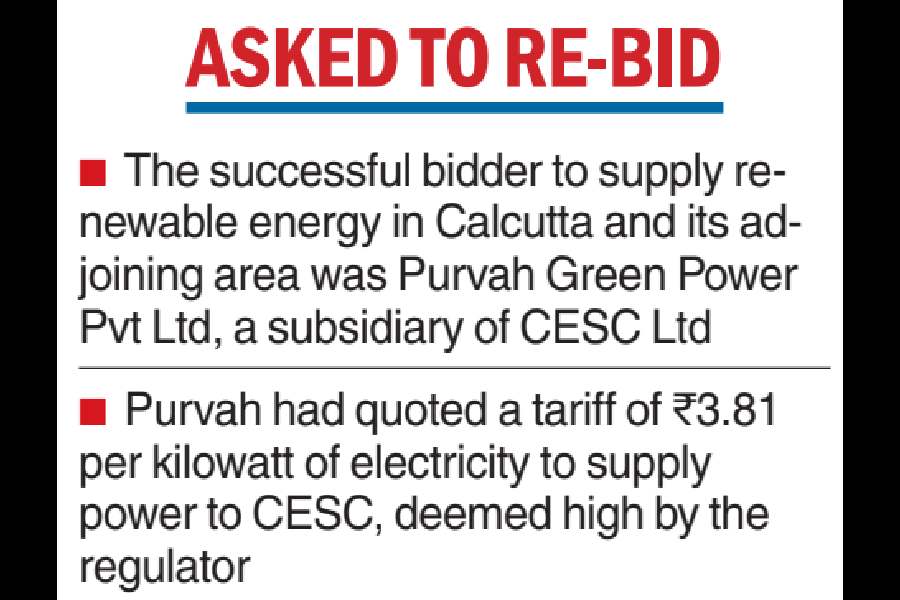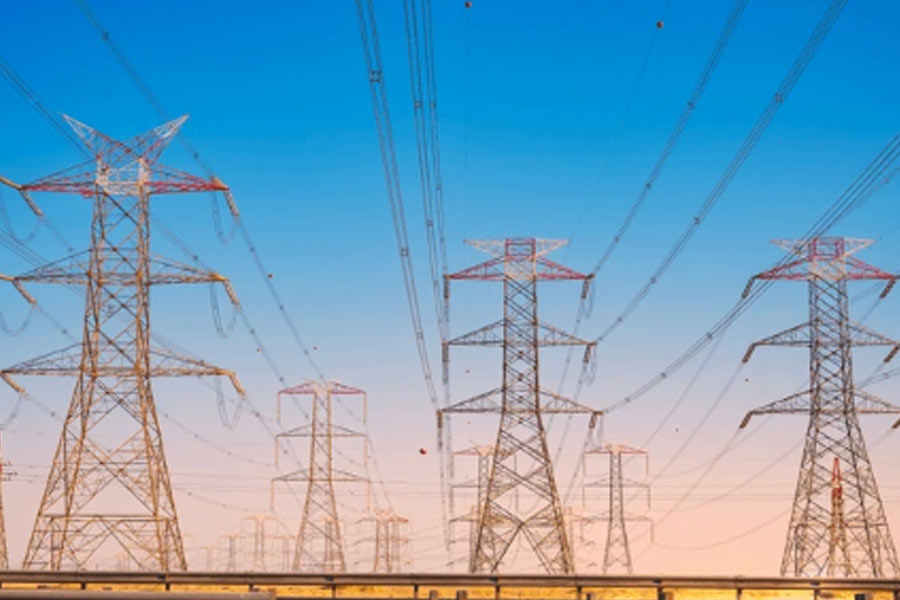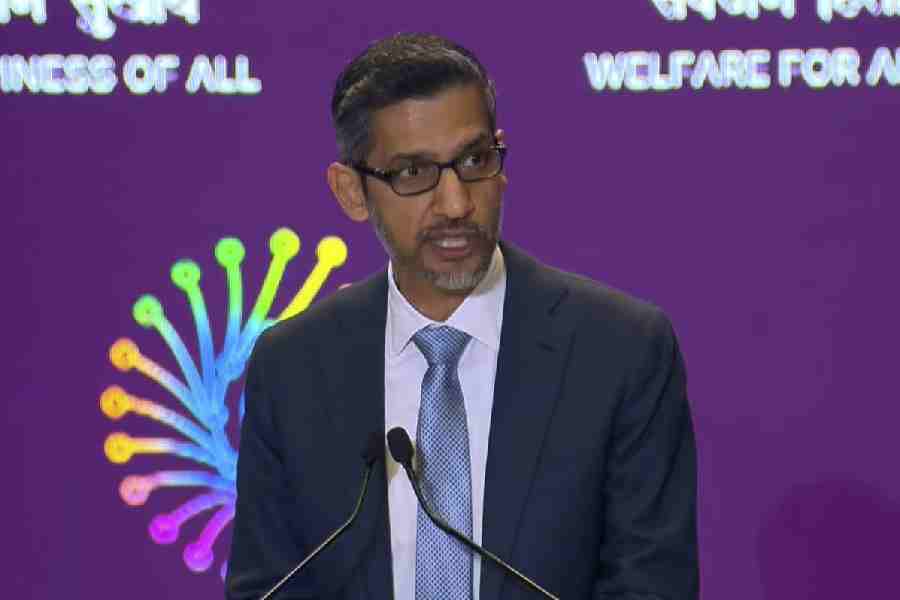The Central Electricity Regulatory Commission has rejected a petition by CESC Ltd seeking approval for adoption of tariff for long term procurement of 300 mega watt of renewable energy for the Calcutta licence area, citing procedural lapses and asked the RP-SG Group flagship to go for re-bidding.
The national electricity regulator said CESC did not comply with the bidding guidelines to arrive at the tariff for procurement of grid connected wind-solar hybrid project which is expected to come up in Madhya Pradesh.
The successful bidder to supply the renewable energy for consumers of Calcutta and its adjoining area is Purvah Green Power Pvt Ltd, a subsidiary of CESC Ltd. Purvah had quoted a tariff of ₹3.81 per kilowatt of electricity to supply power to CESC after a ‘competitive bidding’ process. The regulator observed the tariff to be high. CESC did not comment.

CERC said that CESC had taken certain deviations in the bid (to procure electricity) documents from the provisions of the hybrid guidelines, albeit after obtaining approval from the Bengal government. The deviation is linked to allocation cap on the procurement of power from the lowest (L1) bidder.
The regulator argued that in case of inter-state transmission system, as CESC plans to procure power produced in Madhya Pradesh to distribute in Calcutta, CESC should have sought approval from the central government for deviations in the bid document.
CERC also pointed out that in a previous application made by CESC to procure solar power through the inter-state system, the regulator had asked to approach the central government for approval of deviations. In that case, CESC was procuring 300 MW solar power being produced by Purvah Green Energy in Rajasthan.
In that instant, CESC had sought permission from the Bengal government, which granted the approval, for deviation even as it was an inter-state project. But CERC allowed the PPA then after advising CESC to approach the Centre and not the state government to seek approval for any deviation in future.
“The petitioner was very clear from the very beginning that the bidders would be ISTS connected and hence inter-state in character, thereby requiring the approval of the central government. But it chose to ignore the provision of the guidelines.
“The Commission had condoned this requirement once as an exception, but cannot make the exception a rule. The Commission is not inclined to condone this departure in the present case,” CERC observed.
The regulator also argued that bidding parameters and deviations from the bidding guidelines had the effect of restricting competition, resulting in smaller number of participations in the bid.










